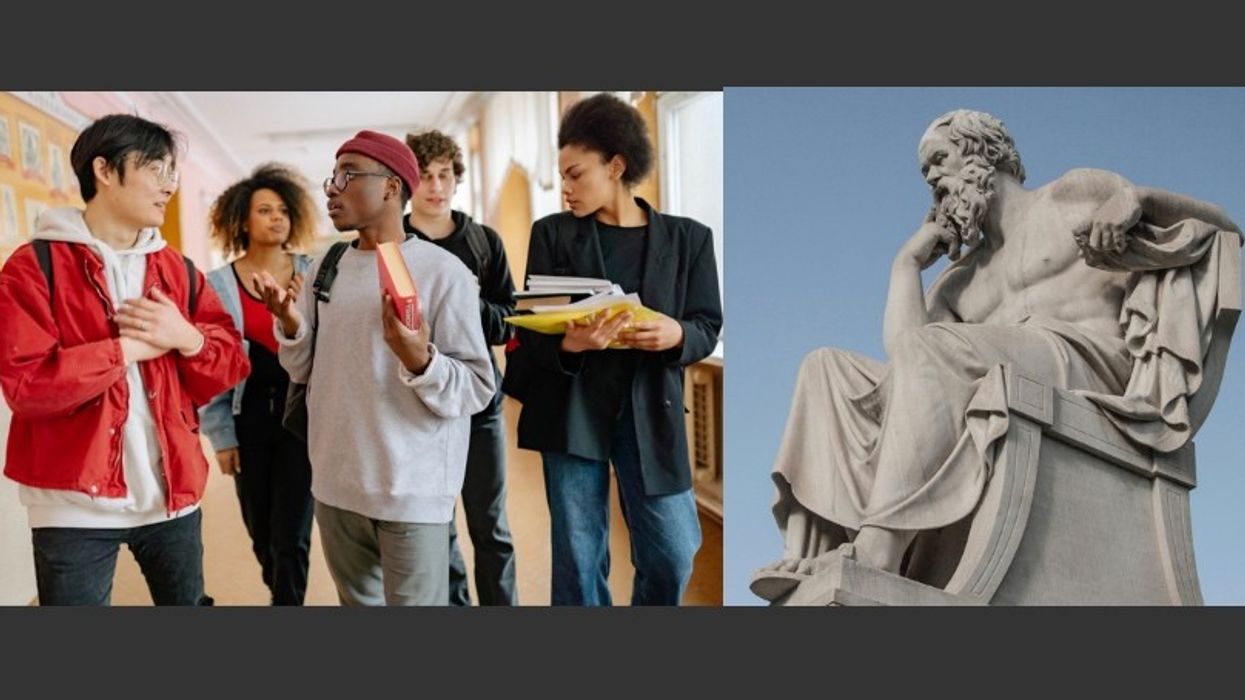Conflict happens whether we want it to or not—at work, at home, and everywhere in between. Some issues need to be addressed, yet many people struggle with how to do it. Depending on the situation, directly refuting or criticizing someone can escalate tensions, trigger defensiveness, or cause the other person to clam up entirely. However, beating around the bush won’t get the results you want either.
Many therapists, lawyers, and even hostage negotiators recommend one key strategy the next time you’re in that kind of situation: stay curious.
@healingrising Conflict transformation tool: ask “what” questions rather than “why” questions Join me this Sunday to learn and practice more skills and tools for showing up in conflict. Courageous connections Sunday march 12, 10 am - 230 pm ✨sign up at link in bio✨ #conflict #conflictskills #curiousquestions #conflictresolution #conflictcoach #communicationcoach #compassion
Instead of trying to force the other person in an argument to understand your perspective, leading with curiosity—and asking questions—helps you understand them. It also gives them space to reflect on their own views as they respond to your genuine questions.
The experts who spoke with GOOD endorse this curiosity-first approach to resolving conflict.
“When someone says something you disagree with, you have a choice,” says workplace conflict resolution expert Richard Birke. “You can contradict them and start an argument, or you can acknowledge that there’s something you don’t yet understand—even if that “something” is simply how the other person could have arrived at their conclusion.”
@conflictish Critique might ask why, when Curiosity might ask what else. And that one shift can determine whether your question builds a bridge or burns one. 😮💨😮💨 😮💨 #critique #criticize #critic #conflictmanagement #conflictresolution #conflict #conflictskills #curiosity #curious #staycurious #conflictfree
“Most people think conflict gets resolved by being more clear or more direct. But if someone’s nervous system doesn’t feel safe, they’re not going to hear you—no matter how clear you are,” says marriage and family therapist Cheryl Groskopf. “Curiosity invites connection. It keeps the conversation in that middle zone where a disagreement can still feel respectful, where people can actually collaborate instead of fighting or shutting down.”
“In negotiations, curiosity-based questions invite the other person to reveal their reasoning, their priorities, and their blind spots,” says attorney Chandler J. Holsapple. “That information gives you more insight and leverage into what they truly value. It also serves as a form of guided discovery. In essence, you’re allowing the other party to arrive at a better conclusion without them feeling forced into it.”
“When you ask someone to walk you through how they’re thinking instead of immediately pushing back you’re signaling to them that they’re not under attack,” Groskopf explained. “If they don't feel under attack, they don't jump to being defensive to try to defend themselves. That’s when people actually start thinking more clearly and are more open to new ideas.”
@desiretheforbidden Navigating conflict with curiosity 💜 #conflict #intimacy #dating
“If you sincerely ask the other person to help you understand, and you are genuinely curious, they will either persuade you to broaden your perspective or be unable to do so—and that moment of inability is often the most effective opportunity to help someone reconsider their position,” concluded Birke.
The next time you disagree with a coworker’s plan, get into an argument with your partner, or find yourself negotiating, start by asking questions. Doing so helps you understand where they’re coming from and what they want—opening the door to new ideas or even allowing them to recognize gaps in their own reasoning when they can’t answer. Either way, you’ll have a better chance of getting your needs acknowledged without coming across as combative. And it greatly increases the likelihood of collaboration rather than having the door slam shut in your face.





















 There are plenty of low or no-cost date ideas.Canva
There are plenty of low or no-cost date ideas.Canva Couples can energize their relationship by finding bonding moments that reignite their wonder.Canva
Couples can energize their relationship by finding bonding moments that reignite their wonder.Canva



 A family holding hands.
A family holding hands.